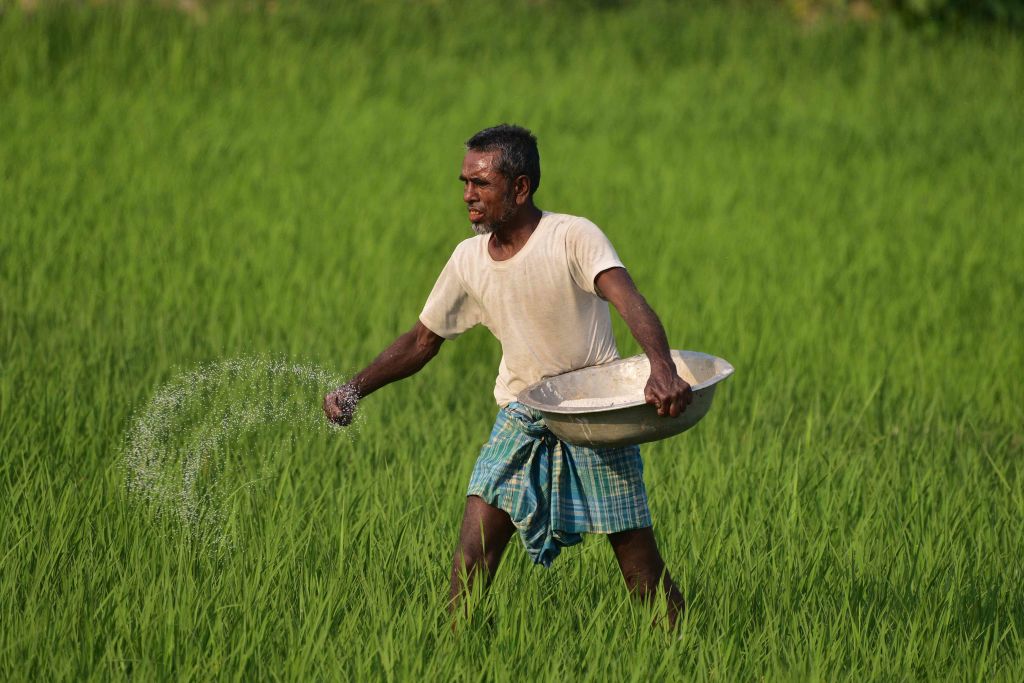Over the past decade, Indian agriculture has witnessed a quiet but powerful shift, a move from chemical-intensive cultivation toward sustainable, organic farming. This transformation is being shaped by the Paramparagat Krishi Vikas Yojana (PKVY), launched in 2015 under the National Mission for Sustainable Agriculture. The scheme reflects India’s growing focus on restoring soil health, improving food safety, and ensuring better incomes for farmers through natural and eco-friendly practices. Backed by steady funding, digital innovation, and farmer participation, PKVY has become one of the key initiatives leading India’s organic farming revolution.
In the early decades after Independence, India’s Green Revolution brought food security but also led to overdependence on chemical fertilizers and pesticides. Over time, this began affecting soil fertility, water quality, and overall sustainability. Recognizing the need for balance, PKVY was introduced to bring back traditional wisdom and combine it with scientific methods of organic production. What started as a small initiative has now expanded into a national movement for sustainable agriculture, providing structure, financial support, and a marketplace for millions of farmers ready to embrace a chemical-free future.
At the heart of PKVY is its cluster-based organic farming model. Farmers are organized into groups of 20 hectares each, enabling them to share knowledge, resources, and certification costs. This approach not only strengthens community participation but also helps maintain uniform organic standards. Farmers receive hands-on training and support to switch to natural farming methods, from using compost and green manures to adopting crop rotation and biological pest control. By February 2025, the scheme had covered around 15 lakh hectares, formed over 52,000 clusters, and benefited more than 25 lakh farmers across the country.
To ensure long-term success, PKVY provides financial assistance of ₹31,500 per hectare over three years, directly transferred to farmers’ accounts through the Direct Benefit Transfer (DBT) system. This support covers all stages, from input preparation and certification to branding and marketing. The transparent DBT process ensures accountability and the timely release of funds. As of January 2025, ₹2,265.86 crore had been released under PKVY since its launch, including ₹205.46 crore in FY 2024–25 under the Rashtriya Krishi Vikas Yojana (RKVY). This sustained funding has helped farmers reduce production costs while maintaining profitability through access to premium organic markets.
Certification has been a major focus area for PKVY, addressing a key challenge that had earlier limited farmers from entering organic markets. The scheme supports both Third-Party Certification under the National Programme for Organic Production (NPOP) and the Participatory Guarantee System (PGS-India). While NPOP certification opens doors to global trade, PGS-India ensures affordable, farmer-led verification for domestic sales. In 2020–21, the government further introduced the Large Area Certification (LAC) system to simplify and speed up certification in areas with no prior chemical use, such as tribal and island regions. Through LAC, places like Lakshadweep, Car Nicobar, and the Nancowry Islands have been fully certified as organic, while Sikkim continues to stand as the world’s first 100% organic state.
Digital tools have further enhanced the program’s efficiency and transparency. The Jaivik Kheti portal, developed by the Ministry of Agriculture & Farmers Welfare, serves as a one-stop platform connecting organic farmers directly with buyers. By December 2024, over 6.23 lakh farmers, 19,000 local groups, 89 input suppliers, and 8,600 buyers had registered on the portal. This has not only made marketing easier but also allowed small and marginal farmers to earn fair prices without intermediaries. The integration of PKVY with digital infrastructure represents a major step towards Atmanirbhar Bharat, empowering rural communities through technology.
The results of these efforts are visible on the ground. Along with higher soil fertility and better crop resilience, farmers have reported reduced input costs and improved market returns. Areas like Dantewada in Chhattisgarh and districts of West Bengal have seen rapid adoption of organic practices under LAC, while new regions such as Ladakh are being supported for certification. With the growing demand for organic produce both domestically and internationally, PKVY is helping India strengthen its position in global markets while ensuring healthier food for its citizens.
Looking ahead, the scheme is being expanded in alignment with the National Mission on Natural Farming (NMNF) and India’s climate goals. The government’s roadmap for 2023–2027 envisions deeper integration of organic farming into mainstream agriculture, emphasizing training, entrepreneurship, and digital access. By promoting low-cost, eco-friendly techniques, PKVY not only reduces environmental pressure but also builds resilience against climate variability. For millions of small and marginal farmers, it represents a path toward sustainable prosperity.
The journey of PKVY reflects a larger transformation in Indian agriculture, one that values nature, tradition, and innovation equally. From improving soil health to empowering farmer collectives, and from certification reforms to digital marketplaces, the scheme has touched every link of the agricultural chain. As India continues its push towards sustainable growth, PKVY stands as a model for how policy, technology, and community can work together to build a greener and self-reliant rural economy.














